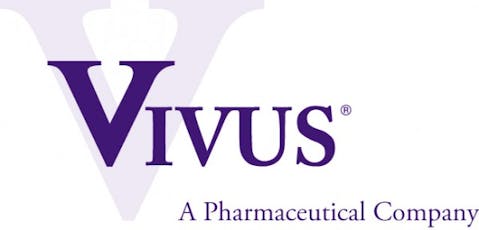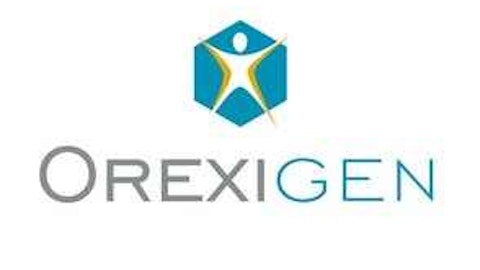According to a Centers for Disease Control study earlier this year, about 36 percent of Americans are obese. While this might seem like an investing goldmine, biotech and small-cap pharmaceuticals are notoriously difficult companies to gauge. There are some companies, though, that we think are well-priced and, importantly for pharmaceuticals, generating revenue with their drugs.
VIVUS, Inc. (NASDAQ:VVUS) is one company with a huge pharmaceutical stake in the weight-loss business. Earlier this month, a European commission recommended the disapproval of its flagship weight-management drug Qsymia, which was set to be marketed as Qsiva in Europe. Depending on the nature of the recommendation, Vivus will either resubmit the Marketing Authorization Application (MAA) or appeal the decision to the European Medicines Agency’s (EMA) Committee for Medicinal Products for Human Use (CHMP).
According to analysts, obesity is not as prevalent of a problem in Europe as it is in America. We observe that, though many individuals consume weight loss therapies when they are not, in fact, overweight, these tend to be over-the-counter pills. Qsiva is dispensed (in the United States) to both obese and overweight individuals “in the presence of at least one weight-related medical condition such as high blood pressure, type 2 diabetes, or high cholesterol.” Thus, doctors might prescribe the drug to those who do not have significant “medical” need for it, but these restrictions are likely enough to deter the large market of those seeking cosmetic enhancement from coercing their doctors.
Vivus notes that 50 percent of Europe’s adult population is obese or overweight. Fine: Vivus is losing out on modest growth potential on the continent. That said, Europe would not be Vivus’ strongest market anyway, says Bank of America/Merrill Lynch analyst Steven Byrne, who claims that the Middle East and Latin America are perhaps more promising regions for expansion. Note also that the prevalence of obesity is not only critical for the adoption of the drug by patients but is also critical for the approval of the drug by medical commissions. This is because medical commissions (e.g. the FDA) fast-track or grant greater leeway to drugs that address a salient public health issue. In the United States, perhaps unsurprisingly for this reason, popularity for the drug was high at a recent Obesity Society meeting, and Byrne projects sales of $3 billion by 2018 in the United States.
We also like Vivus based on the amount of hedge fund attention it has received. John Burbank’s Passport Capital holds 7.88 percent of its portfolio in Vivus (view his portfolio here). The company’s shares shot up about 90 percent in February over the approval of Qsymia (then called “Qnexa”), and Burbank was optimistic at the time in the possibility of a larger company looking to acquire Vivus.
In the same breath in which one discusses Vivus, one must also discuss Arena Pharmaceuticals, Inc. (NASDAQ:ARNA). Unlike Vivus, as we have reported, no hedge fund that we track has more than a 2 percent stake in Arena. However, shares are up 343 percent year-to-date with the announcement that Arena will begin raking in revenue with its new weight-loss drug, Belviq, which is reported to help patients lose 5 percent of their body weight after one year of use. The drug was approved on June 27 by the FDA for the same conditions Qsymia.
Perhaps more important, we want to look at the relative valuations for the companies—they both now have claims to significant revenue streams and are +$1.5 billion market cap companies. An interesting article recently detailed that, as with many biotech companies, Arena’s shares are shifting from the hands of retail investors to institutional investors. The commentator thinks we will see institutional ownership increase next year above 50 percent, after which share prices will be less depressed for Arena. According to the Financial Times, Arena is only 23.3 percent institutionally owned presently. In contrast, Vivus is already 48 percent investor-owned, so the company will likely have more free price movement in the coming months.
We don’t want to speculate about which drug is, all things told, more effective. There are more important considerations. Particularly, doctors will naturally prescribe the safer medication first before moving to less safe options. A label breakdown shows that Belviq only lists “pregnancy” as a contraindication (reason for not being prescribed), whereas Qsymia lists several. Additionally, 17.4 percent of test patients discontinued using higher-dose Qsymia (15 mg/92 mg) due to adverse reactions, compared to 8.4 percent for placebo. For the lower-dose Qsymia (3.75 mg/23 mg), 11.6 percent discontinued. Compare this to the 8.6 percent of test patients who discontinued using Belviq, as compared to 6.7 percent for the placebo group. So doctors might lean towards Belviq first, particularly on account of the contraindications.
The demand for a safe weight-loss drug is staggering, and insurance coverage for it is likely to reach near 100 percent once an attractive option becomes widely marketed and used. We should also mention that Orexigen Therapeutics, Inc. (NASDAQ:OREX) still has Contrave working its way through the U.S. drug approval process. This, along with Belviq, might be more heavily “sampled” drugs than Qsymia, according to Brean Murray analyst Jonathan Aschoff. Once these two, perhaps three, drugs come into full market distribution, we think each of the companies will see significant gains. The question, perhaps, is whether one is a more attractive acquisition candidate or is more likely to multiply in value.


